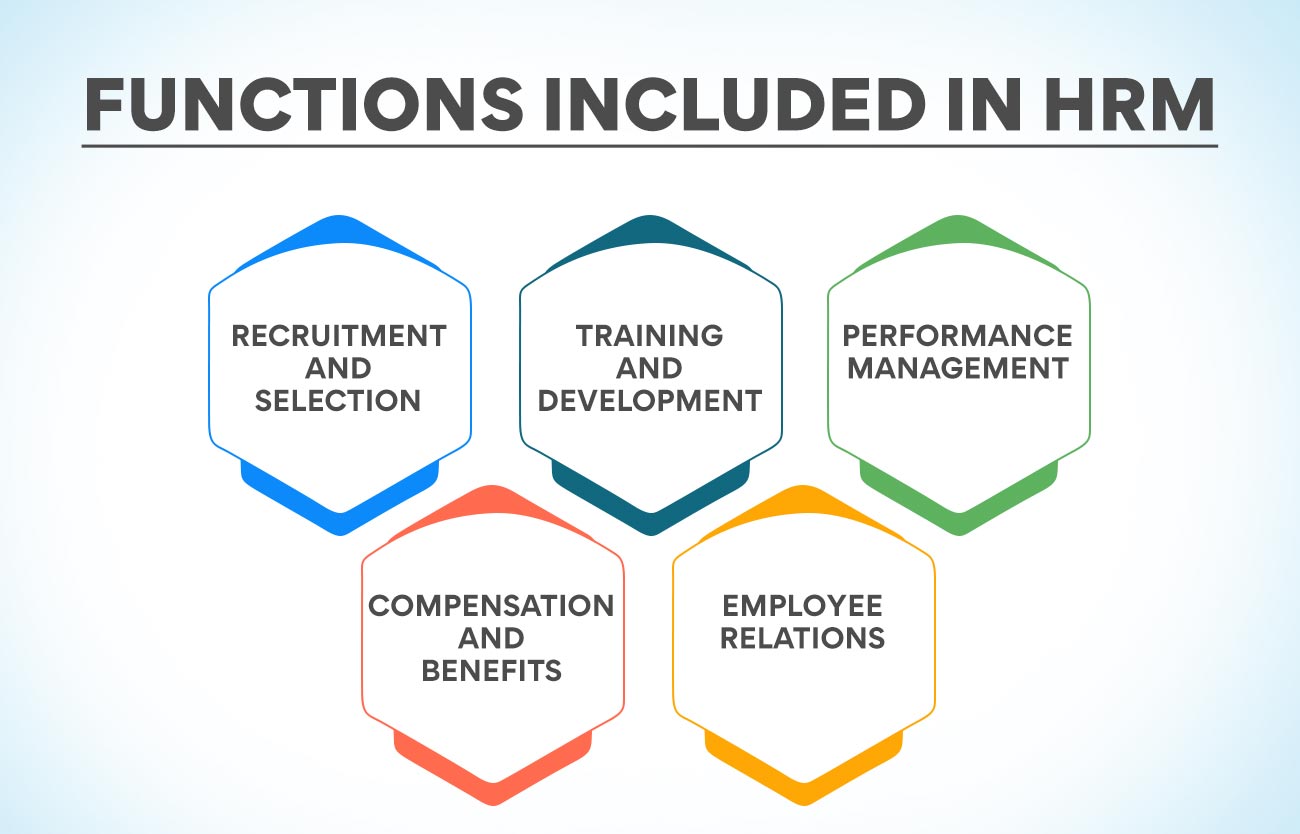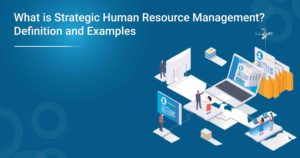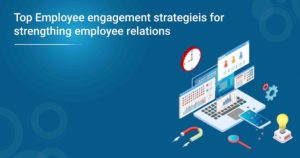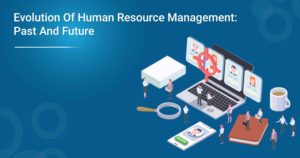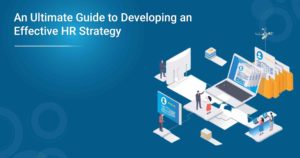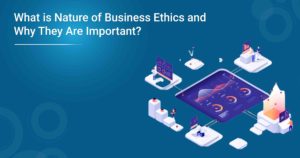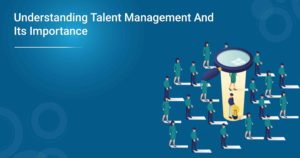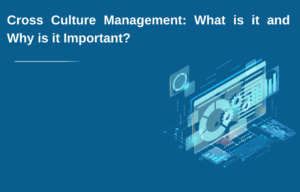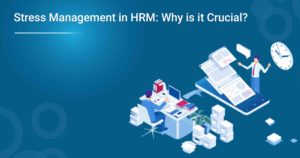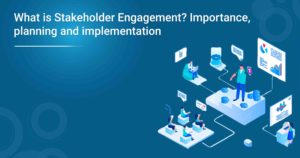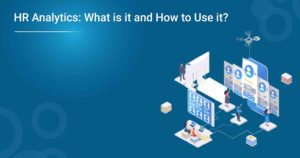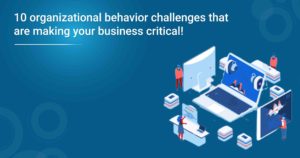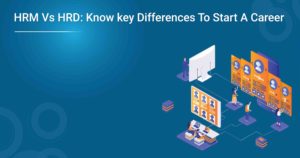HRM vs HRD: Human Resource Management (HRM) and Human Resource Development (HRD) are often used as replaceable terms, but there are differences between the two. While HRM is concerned with managing people within an organisation, HRD focuses on developing people to reach their full potential. This blog post will explore the key differences between HRM and HRD, so you can better understand which is suitable for your career.
Define HRM With Examples
Human resource management (HRM) is managing people in organisations. In its simplest form, it is hiring and managing employees. However, HRM encompasses much more than that. It includes all aspects of how people are managed in organisations, from recruiting and hiring to training and development, performance management, and salary administration.
One of the critical functions of HRM is ensuring that an organisation has adequate people with the right skill set and knowledge to achieve its objectives. To do this, HR professionals use various tools and techniques, such as job analysis, succession planning, and employee evaluation.
Another critical function of HRM is to develop and implement policies and procedures that help an organisation operate effectively and efficiently. These policies cover equal employment opportunity, workplace safety, labour relations, employee benefits, and payroll administration.
HRM also plays a critical role in organisational change. Whenever an organisation changes – whether a new strategy, a merger or acquisition, or a downsizing – HR must assess the impact on employees and develop plans to manage the transition. It might include developing communication strategies, providing counselling services, or designing training programs.
Finally, HRM ensures that an organisation complies with all applicable laws and regulations. It includes ensuring that wages are paid correctly, safety standards are met, and equal employment opportunity laws are followed.
Functions Included In HRM
- Recruitment and Selection: The HRM function of recruitment and selection involves sourcing and hiring employees who are best suited for the organisation. It includes identifying talent, conducting interviews, and extending job offers.
- Training and Development: Once employees are hired, they must be trained to succeed in their roles. It includes both initial onboarding training as well as ongoing development opportunities.
- Performance Management: Another essential HRM function is performance management. It includes setting expectations for employee performance, providing feedback, and taking disciplinary action when necessary.
- Compensation and Benefits: Employees need to be fairly compensated for their work; this is another area where HRM comes into play. Organisations must also offer competitive benefits packages to hire and retain top talent.
- Employee Relations: Finally, HRM also handles employee relations matters such as conflict resolution, policy enforcement, and union negotiations (if applicable).
Roles & Responsibilities of HRM Professional
The roles and responsibilities of HRM professionals are vast and varied. They may be responsible for recruiting, training, and managing employees; developing and implementing policies; overseeing benefits and compensation programs; and much more. To succeed in their roles, HRM professionals must deeply understand the business they are working in and the people they are managing.
In recent years, the role of HRM has become increasingly important as businesses realise that their most valuable resource is their people. As such, HRM professionals must be strategic thinkers who can help organisations achieve their goals by effectively managing their workforce.
How Does an HRM Career Look Like?
In an HRM career, you will be responsible for managing a company’s human resources. This includes recruiting and hiring employees, managing employee benefits and compensation, and developing employee policies. You will also ensure that the company complies with all local, state, and federal employment laws. In addition to these duties, you may also be responsible for conducting performance reviews and counselling employees.
Define HRD With Examples
Human Resource Development (HRD) is a process through which employees in an organisation are helped to acquire new skills, knowledge, and abilities needed to perform their jobs effectively. HRD programs and activities are designed to improve employee productivity and contribute to overall success.
There are different types of HRD programs and activities that can be used to accomplish these goals. Some common examples include training and development programs, career planning services, and employee assistance programs.
There are many examples of HRD in action. A few common ones include:
- Developing training and development programs to help employees improve their skills and knowledge
- Conducting needs assessments to identify areas where employees need improvement
- Designing and implementing employee recognition programs
- Creating policies and procedures to ensure compliance with laws and regulations
Also Read: Breaking Down The Scope Of Human Resource Management
Functions Included In HRD: Brief Explanation of 5 Functions
- Recruitment and selection: The recruitment and selection function of HRD ensures that proficient people are hired for the organisation. This includes finding and screening candidates, conducting interviews, and making final hiring decisions.
- Training and development: The training and development function of HRD helps employees learn the skills they must flourish in their jobs. This includes designing training programs, delivering training, and evaluating its effectiveness.
- Performance management: The performance management function of HRD is responsible for setting goals and expectations for employee performance and ensuring their performance is meeting the company objectives. It also includes boosting their performance by improving productivity and taking corrective action when necessary.
- Compensation and benefits: The compensation and benefits function of HRD ensures that employees are paid fairly and receive the benefits they are entitled to. This includes developing compensation plans, administering benefits programs, and ensuring compliance with laws and regulations.
- Employee relations: The employee relations function of HRD is responsible for maintaining a positive relationship between employees and the organisation. This includes managing communication, handling conflict resolution, and promoting employee engagement.
Roles & Responsibilities of HRD Professional
The Human Resource Development (HRD) professional has many organisational roles and responsibilities. They are responsible for the workforce’s overall development, including training and education, career development, and organisational development. In addition, HRD professionals play a crucial role in managing employee relations and ensuring compliance with labour laws and regulations.
HRD professionals must deeply understand the business to develop strategies that align with the company’s goals and objectives. They must also be able to communicate efficiently with all levels of employees, from entry-level workers to senior executives. Strong interpersonal skills are essential in this role, as is the ability to think strategically and solve problems.
To start a career in HRD, you must be aware of the various roles and responsibilities of the job. By understanding what is expected of you, you can set yourself up for success in this exciting and challenging field.
How Does an HRD Career Look Like?
A career in HRD may involve working in a variety of settings, including corporations, government agencies, nonprofit organisations, and educational institutions. HRD professionals typically have a deep knowledge of human resource management (HRM) practices and philosophies and experience designing and delivering training programs.
In many cases, HRD professionals are responsible for developing the curriculum for HRM programs and teaching courses on employee relations, performance management, and labour law. They may also be involved in developing online training programs or conducting research on new HRM approaches. Additionally, HRD professionals may consult with organisations on strategic workforce planning and provide support during times of organisational change.
HRM Vs HRD
HRM vs HRD: Human resource management (HRM) and human resource development (HRD) are two approaches to managing people in organisations. They both aim to improve employee performance and contribute to organisational success.
The main variation between HRM and HRD is that HRM focuses on efficiently using human resources within an organisation, while HRD emphasises employee development and learning. Both approaches have their advantages and disadvantages.
Advantages of HRM:
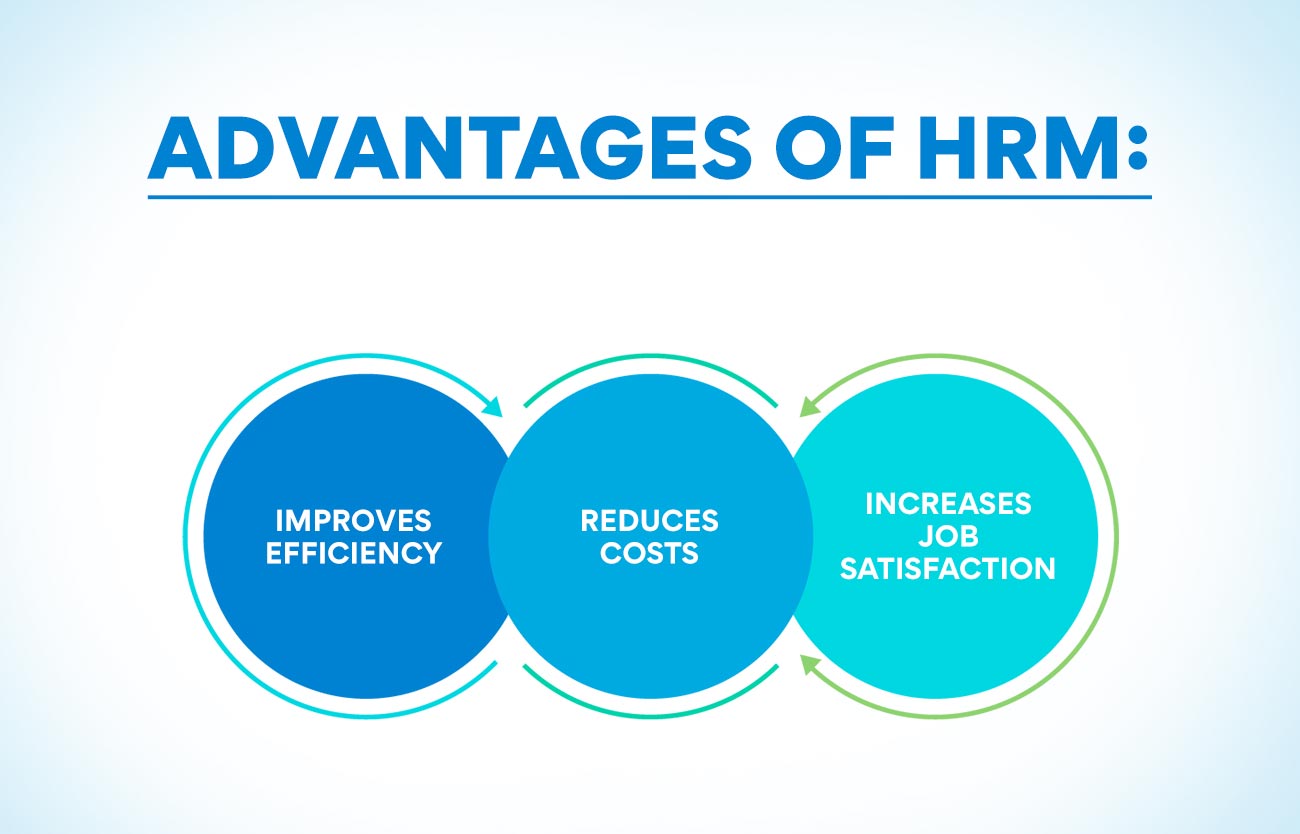
- Improves efficiency: HRM can help organisations become more efficient and productive by carefully selecting, training and motivating employees.
- Reduces costs: An effective HRM system can help reduce labour costs by ensuring that the right people are hired for the right jobs and properly trained to do their work efficiently.
- Increases job satisfaction: Employees feel valued and appreciated and are satisfied with their jobs. This can lead to increased productivity and improved retention rates.
Advantages of HRD:
- Train Employees: HRD can help organisations train and develop employees to meet future challenges.
- Boost Morale: HRD can improve employee morale and commitment by providing opportunities for career growth and development.
- Improve Workforce Quality: HRD can contribute to organisational effectiveness by improving workforce quality and increasing productivity.
HRM vs HRD: How is HRM Better?
There are a few key ways in which HRM is better than HRD:
- HRM takes a more strategic and long-term approach to managing people and resources within an organisation.
- HRM is better equipped to manage change within an organisation, as it considers both individual and organisational needs when making changes.
- HRM has a stronger focus on developing people and preparing them for future roles, while HRD generally focuses on training people for their current roles.
HRM vs HRD: How is HRD Better?
There are a few key ways in which HRD is better than HRM:
- HRD takes a more holistic and long-term view of employee development, while HRM is more focused on the short-term management of employees.
- HRD emphasises learning and growth for all employees, while HRM often focuses on compliance and managing performance.
- HRD includes formal and informal learning opportunities, while HRM primarily deals with formal training programs.
Ultimately, these differences lead to a more engaged and productive workforce in organisations prioritising HRD.
Also Read: Objectives & Nature of Human Resource Management
HRM vs HRD: How To Choose Between HRM And HRD For A Fruitful Career?
HRM vs HRD: Choosing between HRM and HRD can be difficult, but there are some crucial factors to consider to make the decision easier. First, think to consider the career goals and what to achieve. To be involved in the daily operations of a company and have a more hands-on approach to managing people, then HRM may be the better option for you. On the other hand, if you’re interested in developing long-term strategies for organisational success and improving employee performance, then HRD may be a better fit.
Yet another crucial factor to keep in mind is the size of the organisation you want to work for. If you’re interested in working for a large corporation, then HRM is likely to be a better option as there are usually more opportunities for advancement within larger organisations. However, suppose you’re interested in working for a smaller company or nonprofit. In that case, HRD may be a better choice as you’ll often have more responsibility and autonomy in this type of setting.
Finally, think about your personal preferences and strengths. Do you prefer working with numbers and data? Then HRM may be a good match for you. Or do you enjoy working with people and helping them reach their potential? If so, then HRD may suit you best. Ultimately, the decision between HRM and HRD comes down to what you want to achieve in your career and what environment you feel most comfortable in. Consider all of these factors before deciding to ensure you choose the right path for you.
How To Start A Career in Human Resources?
Human resource is a broad field that covers many different job responsibilities. To begin a career in HR, you will need to understand the various functions of the HR department and how they work together to support the organisation as a whole.
The first step in beginning a career in human resources is to decide what area of the field you would like to specialise in.
Human resources have many specialities, such as compensation and benefits, employee relations, recruiting and staffing, training and development, and labour relations. Once you have decided on a speciality, you can look for entry-level jobs that will give you experience in that area.
You will need strong communication and interpersonal skills to succeed in any human resources career. You must be able to effectively communicate with people at all levels of the organisation, from frontline employees to senior executives. You will also need excellent problem-solving skills to handle difficult employee issues.
Suppose you are interested in starting a career in human resources but don’t have any previous experience working in the field. In that case, there are several ways you can gain the knowledge and skills necessary for success. Many colleges and universities offer degree programs specifically to prepare students for careers, just like our Post Graduate Certificate in Human Resource Management. Check out the course here.
Skills Required To Become An HR Professional
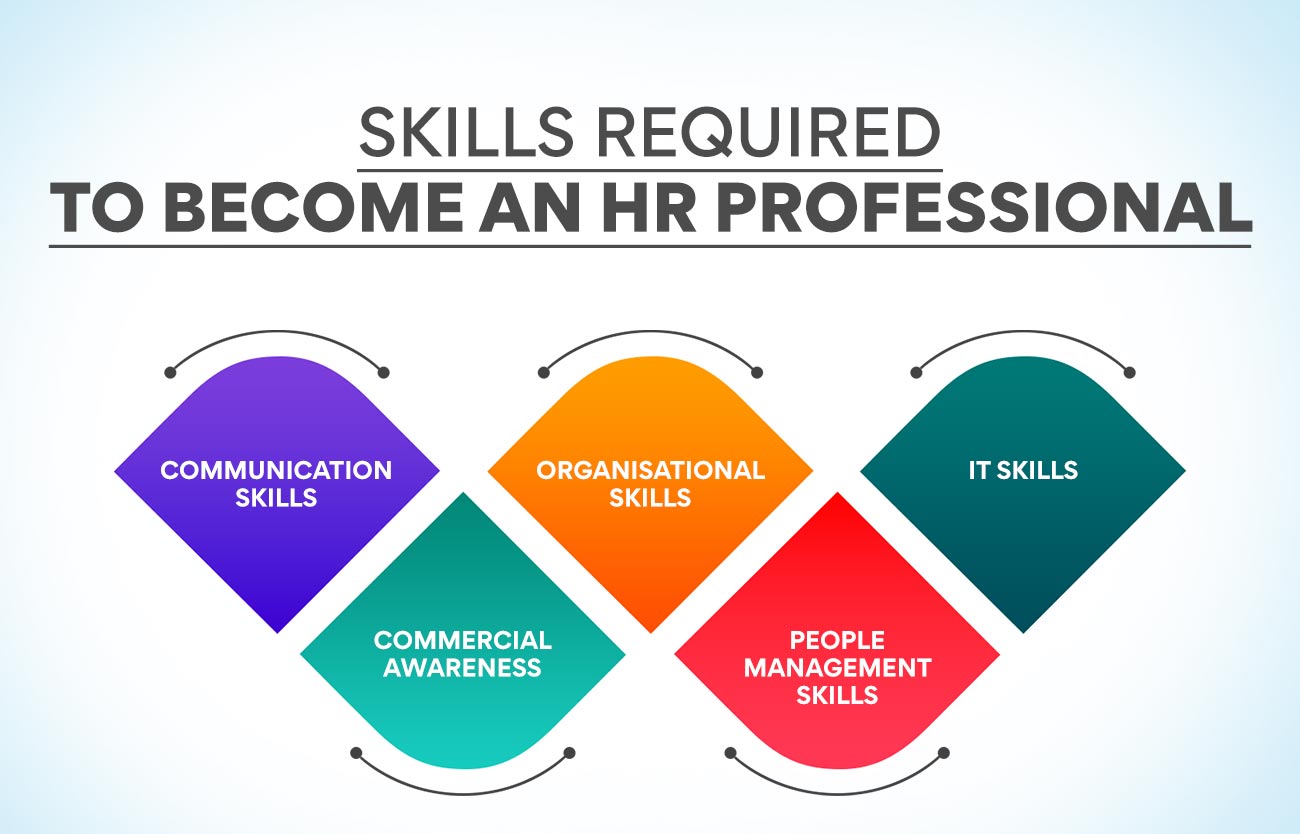
- Communication Skills: Communication is one of the essential skills required to become a successful HR professional. You must communicate with people at different levels within an organisation, as well as be able to manage difficult conversations.
- Organisational Skills: As an HR professional, you must be highly organised to juggle multiple tasks and priorities. This includes maintaining accurate records, tracking deadlines and keeping on top of ever-changing employment legislation.
- IT Skills: HR professionals must have strong IT skills to use various software and systems efficiently in today’s digital world. From using spreadsheets to manage employee data to using online recruitment tools, being confident with IT is vital in this role.
- Commercial Awareness: A good understanding of commercial acumen is also key to pursuing a career in HR. It includes awareness of business goals and objectives and how the workforce can contribute towards achieving these aims.
- People Management Skills: Lastly, excellent people management skills are crucial for any HR professional who wants to succeed. From managing a team to liaising with directors, an HR professional has to do it all.
Challenges in the HR Profession and How To Tackle Them
- Employee Engagement – One of HR professionals’ most significant challenges is employee engagement. Low levels of attention can lead to high levels of turnover, absenteeism, and decreased productivity. To tackle this challenge, HR professionals need to find ways to increase employees’ sense of connection to their work and their company. This can be done through initiatives such as creating a positive work environment, offering opportunities for career development, and providing recognition and feedback.
- Talent Management – Another big challenge for HR professionals is talent management. With the war for top talent becoming more intense, companies need to find ways to attract, develop, and retain the best employees. This can be done through initiatives such as implementing a robust recruiting process, investing in employee development programs, and offering competitive compensation packages.
- Diversity & Inclusion – When the workforce becomes more diverse, HR professionals must find ways to foster an inclusive environment where all employees feel respected and valued. It can be done via initiatives such as developing unconscious bias training programs, establishing diversity & inclusion councils or committees, and setting goals for increasing diversity at all levels within the organisation.
- Workforce Planning – Another challenge facing HR professionals is workforce planning. With the everbearing students for careers, there is a gap in workforce planning that is severely hampering productivity and efficiency. It can be tackled by deploying stringent workforce planning wherein HR professionals use data, feedback, and performance analysis to make well-formed decisions.
Conclusion
HRM vs HRD: The key difference between HRM and HRD is that HRM focuses on managing people within an organisation, while HRD focuses on developing people within an organisation. Both approaches are essential for any business to be successful. However, the focus of each approach is different. While HRM focuses on managing people to meet organisational goals, HRD focuses on developing people to reach their potential and contribute to the organisation’s success.
Check out our Post Graduate Certificate in Human Resource Management to take baby steps towards a successful and forward-marching career in human resources.
More Information:
Evolution Of Human Resource Management: Past and Future
What is Stakeholder Engagement? Importance, Planning and Implementation







